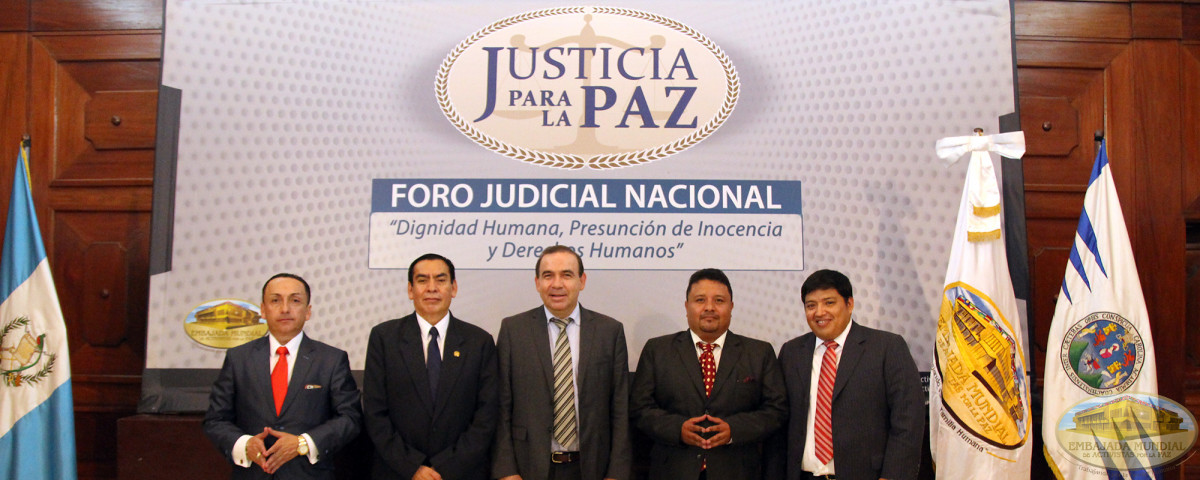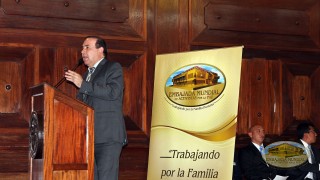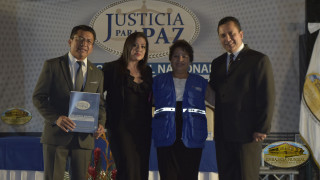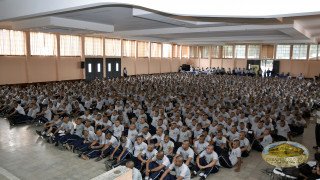Forum Justice for Peace
Guatemala holds the Second Forum under the theme "Justice for Peace"
On April 20th of this year, the National Judicial Forum was held under the theme "Human Dignity, Presumption of Innocence and Human Rights", promoted by the Global Embassy of Activists for Peace (GEAP), through the “Justice for Peace " program, with the support of the Academy of Criminal Sciences and Human Rights in Guatemala.
The Academy of Criminal Sciences is an institution that trains, advises, academically and scientifically investigates, provides preparation for professional technical examinations of all universities in matters of public and private law. Likewise, training courses to opt for higher hierarchical levels in the different agencies of the justice sector, social defense, psychological skills and consultancies. It seeks the unrestricted effectiveness of criminal prosecution and full respect for human rights and dignity.
The event was hosted in the Main Hall of the Museum of the Tercentenary University of San Carlos of Guatemala, located in the Historical Center of the capital city; Building declared National Monument in 1970.
The event was attended by honorable magistrates, judges, lawyers and notaries, law professionals, members of the National Civil Police and students from the different universities in the country; Counting on a participation of more than 300 people.
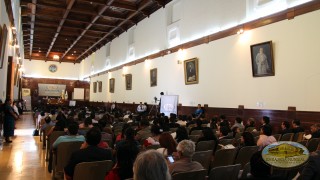
The Forum began with the presentation of the themes "Justice as a presupposition for peace", presented by Dr. Francisco Guerra, national coordinator of GEAP in Mexico; who said that the fundamental principle that moves the GEAP to carry out these Forums is that there can be no peace in the world without a real justice:
"The social restlessness that our countries live in is because of so much impunity of crimes that are committed every day, and that most of them are not punished, there is no repair of damages caused. Hence the importance of the subject of justice”.
"The social restlessness that our countries live in is because of so much impunity of crimes that are committed every day, and that most of them are not punished, there is no repair of damages caused. Hence the importance of the subject of justice”.
Dr. Castillo, presented several examples of jurisprudence given in the country, where he wanted to evidence the violation of the rights of possession, consultation and health of indigenous communities:
"In Guatemala there are cases in which mining and hydroelectric licenses generate controversy when communities feel affected and their rights violated. It is necessary to recognize the rights of an indigenous community; nor should it be necessary to resort to the right of protection, however, this is a useful tool to achieve social peace ...”
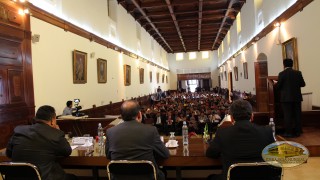
"Human Rights, Human Dignity and Rational Justice" was the subject set forth by the doctor in law Ludwin Villalta, president of the Academy of Criminal Sciences and Human Rights of Guatemala. In it, he made reference to the professional practice of Law, in which a total adherence to the legislation has been observed. However, he pointed out that there are two postulates that imply a questioning:
"What has been first, dignity or legality? What is first, man or the state? And the other important juncture: What is more important, to apply human rights or the Constitution?"
According to him, there is an irrefutable point in this sense, and it is the historical argument. This dictates that the first thing has been human rights. Such an example is common law in England. Later he indicated that Hitler considered that the law is more important than the human rights and based on his Constitution carries out the acts that history teaches us. Under the argument of the law, atrocious crimes were made on the basis of the judges' compliance with the law.
At the end of the presentations, the former president and current magistrate of the Supreme Court of Justice, Dr. Josué Felipe Baquiax, addressed the participants a few words of introduction to the book "Sana Critica Reasonada".

